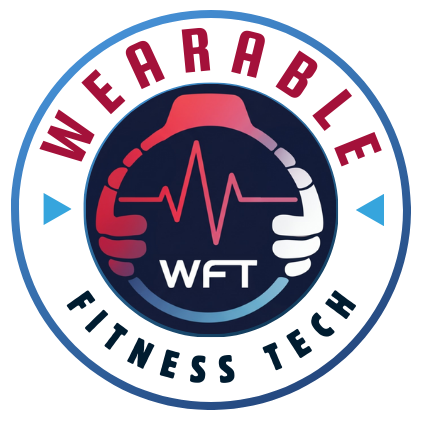
Smartwatches and fitness trackers have become everyday essentials for many, blending style with cutting-edge tech. But what exactly sets them apart? While both are wrist-worn gadgets, a smartwatch offers a whole lot more than just tracking steps. Think notifications, apps, and sometimes even making calls. On the flip side, fitness trackers usually focus on health metrics like heart rate, step counting, and sleep monitoring without the full smartphone-like experience.
Before we dive into the feature details of these two types of devices, here are examples of:
Top 5 smartwatches

Top 5 fitness trackers

Feature Comparison
Let’s talk features because that’s where these two really show their true colors. Fitness trackers are all about minimalism and accuracy in health data. They’re designed to be lightweight and easy to wear 24/7, often with longer battery life since they don’t need to power a larger screen or complex apps like smartwatches do. In contrast, smartwatches bring more to the table with vibrant displays, GPS, and music controls, making them a tech-savvy lifestyle companion.
Wearable tech has come a long way. The early days of simple pedometers have morphed into today’s feature-rich devices that literally map your heartbeat and sleep cycle in ways we could only dream of a decade ago. Fitness trackers have become more sophisticated while smartwatches are like having a tiny smartphone on your wrist, making them an integrated part of our gadget ecosystem.
For those who are budget-conscious, it’s worth noting the differences between a budget smartwatch and an affordable fitness tracker. Cheaper smartwatches might not tick all the boxes if you’re looking for precision in fitness data — something fitness trackers excel at. However, if having access to notifications or other smart features is crucial, you’d likely benefit more from even a basic smartwatch.
So when you’re choosing between these two, it’s all about what matters most for your lifestyle. Whether it’s having access to real-time heart-rate monitoring during a morning jog or keeping your schedule at your wrist’s glance, understanding each device’s core purpose is key.
Before we dive into the feature deference between the Smartwatches and Fitness trackers, here is a list of top 5 smartwatches and top 5 fitness trackers:
Fitness Enthusiasts’ Dilemma: Which is Better?
Choosing between a smartwatch and a fitness tracker can be a bit of a head-scratcher for fitness lovers. Each has its unique strengths that might appeal differently depending on your goals. Let’s break it down so you can make an informed choice.
For those deeply entrenched in the world of fitness, picking the right device is almost like selecting a workout buddy. A smartwatch might appeal if you’re someone who loves tech-savvy features alongside fitness monitoring. Besides your standard health metrics, they often offer extras like music streaming or quick access to notifications, which can make long runs or workouts more enjoyable.
Meanwhile, fitness trackers are tailored for those seeking a streamlined approach. Their battery life is often superior, allowing you to focus on hitting daily step goals or tracking your sleep without constantly worrying about recharging. If you’re focused on fitness achievements like step counts or calories burned, these are a reliable choice.
For weight loss goals, it’s all about consistency and accuracy in tracking your daily activity and caloric expenditure. Fitness trackers are generally lightweight and less intrusive, encouraging constant wear, which helps in maintaining an accurate log of activities.
Daily usage matters too. If tech integration in your everyday activities is something you need, a smartwatch may suit you better, offering seamless connectivity with your smartphone’s ecosystem. But if you lean towards a more focused fitness approach without all the bells and whistles, a fitness tracker serves just right.
Remember, it’s about finding what’s best for your routine and fitness journey. Take some time to reflect on your lifestyle and decide which device will drive you towards those health goals with a smile.
Health Tracking Capabilities Explained
When it comes to health tracking, both smartwatches and fitness trackers offer a variety of features, yet they aim their focus differently. Smartwatches integrate multiple functionalities, but how do they compare when the goal is pure health monitoring?
Fitness trackers often excel in offering precise health stats. They’re specifically designed with sensors to measure steps, heart rate, and sleep patterns with remarkable accuracy. Their focus is clear, making them a choice companion for those who value dedicated health tracking.
Smartwatches, on the other hand, are like your health assistant with side benefits. They might not measure every heartbeat as precisely as some fitness trackers, but they give you a comprehensive view of your well-being within an app-friendly environment. For runners and athletes, the built-in GPS and diverse sports modes offer more context beyond just steps and calories burned.
So how about heart rate monitoring? Fitness trackers usually provide continuous heart rate monitoring, perfect for keeping an eye on your fitness intensity levels in real-time. Smartwatches also offer this feature but can sometimes get sidetracked by offering notifications or other apps simultaneously.
Tracking your sleep is another area where these devices put on quite a show. Fitness trackers often provide insightful sleep stage tracking that helps you understand your sleep quality. Smartwatches offer these features too and combine them with other health data like stress levels to give a more holistic view.
Think of these devices as your personal coaches, guiding you through your fitness journey. No matter your goals, understanding their health-tracking capabilities will empower you to make a choice that truly benefits your wellness path.
Comparative Analysis on Features and Usability
When weighing the features and usability of smartwatches against fitness trackers, it’s essential to look beyond just aesthetics to everyday functionality. Both devices bring something unique to the table, matching different lifestyles and needs.
Fitness trackers shine with their straightforward approach to health monitoring, usually boasting longer battery life due to their focused functionalities. This makes them a go-to for those who don’t want to be tied to a charger daily. Their simpler interfaces ensure that health data takes center stage, without the distraction of extra apps or notifications.
Smartwatches might demand a bit more power but compensate with a robust set of features. Whether it’s a full-color touch display, GPS navigation, or voice commands, there’s a level of interactivity here that fitness trackers can’t quite match. Handy for those who love to juggle multiple tasks at once, they fit seamlessly into a tech-heavy lifestyle, offering integrations from scheduling to quick message replies.
When it comes to accurate step counting, both devices do the job, but fitness trackers, with their specific algorithms, tend to edge out smartwatches with slightly finer precision tuned for active use.
For those who enjoy having a mini-lifestyle hub on their wrist, smartwatches offer a versatile experience. On the flip side, if the goal is to hone in on just health stats without the frills, fitness trackers are straightforward and efficient.
Choosing between these two shouldn’t feel like rocket science. Think about what fits more naturally into your daily life and priorities. High-tech multitasking or detailed health insights? Either way, both options aim to enhance how you interact with technology every day.
Making the Right Choice for Your Needs
Navigating the decision between a smartwatch and a fitness tracker comes down to a few personal considerations. It’s about what you value most in a wearable and how it fits into your lifestyle. Before making a purchase, think about the reasons you’re drawn to a wearable device in the first place.
Begin by defining your primary needs. Are your goals centered around health tracking and insight into your physical activities, or are you more inclined towards connectivity and having smartphone functionalities on your wrist? This self-assessment is a good starting point.
Also, consider the integration of technology into your daily life. If you’re someone who’s seamlessly plugged into your phone’s ecosystem and values functionality like message notifications, music control, and even making calls, then a smartwatch will likely serve you better.
Cost can be a deciding factor too, especially if you’re budget-conscious. Affordable fitness trackers aren’t just pocket-friendly but also give excellent insights into your health without unnecessary gadgetry. For those looking for more extended features without breaking the bank, exploring budget-smartwatches that offer a decent mix can provide a middle ground.
User testimonials and recommendations are gold when making your choice. Real-world experiences often highlight aspects not immediately obvious from product descriptions, offering insights into long-term usability, comfort, and reliability.
Remember, there’s no definitive answer to “which is better?” It’s about aligning what these devices offer with your personal goals and preferences. Whether you prioritize having a tech-filled wrist companion or desire detailed fitness insights, your choice should support your everyday routine and ambitions.
